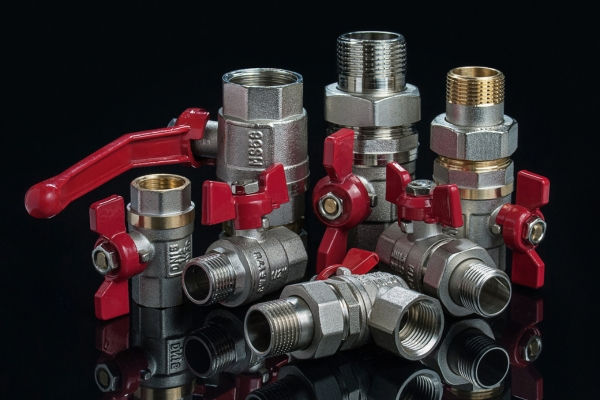How Much Do You Know About The Fastener Mold Industry?
- xiongchengcemented
- Mar 18
- 4 min read

The fastener mold industry plays a crucial role in modern manufacturing, yet many people are unaware of its significance. Whether you're in construction, automotive, aerospace, or industrial manufacturing, fasteners are an essential component of almost every product. To create high-quality fasteners, specialized molds are required, and that's where the expertise of mold manufacturers and suppliers, such as a carbide mold supplier, comes into play. These molds ensure precision, durability, and efficiency in mass-producing fasteners that hold the world together.
Understanding the Fastener Mold Industry
The fastener mold industry is dedicated to producing molds used in the manufacturing of screws, bolts, nuts, rivets, and other fastening components. These molds are designed to shape raw materials like metal into perfectly formed fasteners through various processes such as cold heading, hot forging, and extrusion.
Fastener molds are critical in ensuring:
Uniformity in fastener size and shape
High production efficiency
Enhanced durability and strength of fasteners
Reduced material waste and defects
With industries relying on strong and precise fasteners, advancements in mold technology continue to push the limits of what is possible.
Types of Fastener Molds
The production of fasteners requires different types of molds, each designed for specific applications. Some of the most common types include:
Cold Heading Molds – Used in cold forming, these molds shape metal at room temperature without heating, making the process highly efficient and cost-effective.
Hot Forging Molds – In this method, metal is heated before being shaped, ensuring superior mechanical strength.
Extrusion Molds – These molds help create complex fastener shapes by forcing metal through a shaped die.
Thread Rolling Dies – These specialized molds form the threads on screws and bolts, ensuring a precise fit and strong grip.
Each mold type plays a vital role in shaping the quality and strength of the final fasteners.
Materials Used in Fastener Molds
Molds used in fastener production must withstand extreme pressure, temperature, and wear. The most commonly used materials include:
Tungsten Carbide – Known for its superior durability, carbide molds last longer and provide high precision.
Tool Steel – A cost-effective option offering good wear resistance and toughness.
High-Speed Steel (HSS) – Provides better heat resistance compared to tool steel but may wear faster than carbide molds.
Among these, tungsten carbide molds are preferred in high-volume manufacturing due to their superior wear resistance and longer lifespan.

How Fastener Molds Are Manufactured
The production of fastener molds involves several steps to ensure they meet industry standards. The process typically includes:
Design & Engineering – Experts design the mold using CAD software to create precise dimensions and specifications.
Material Selection – The right material is chosen based on the fastener type and production requirements.
Machining & Grinding – The mold is shaped using CNC machines and ground to perfection.
Heat Treatment – Some molds undergo heat treatment to enhance strength and durability.
Coating & Finishing – Surface coatings such as titanium nitride can be applied to improve wear resistance.
Testing & Quality Control – Before being used in production, molds are tested to ensure precision and durability.
Each step is important to guarantee the final fasteners are strong, durable, and defect-free.
Challenges in the Fastener Mold Industry
While the industry continues to evolve, several challenges persist, including:
High Tooling Costs – The initial investment in high-quality molds can be expensive.
Material Wear & Tear – Even the toughest molds experience wear over time, requiring replacement or refurbishment.
Precision Requirements – Fasteners must meet strict industry standards, making precision a top priority.
Technological Advancements – Keeping up with innovations in mold materials and manufacturing techniques is essential to staying competitive.
To overcome these challenges, manufacturers invest in advanced machining techniques, quality materials, and automation to improve efficiency and reduce costs.
The Future of the Fastener Mold Industry
The fastener mold industry is rapidly evolving with advancements in automation, AI-driven quality control, and eco-friendly manufacturing. Key trends shaping the industry include:
Increased use of tungsten carbide molds for their longevity and precision.
3D printing technology in mold prototyping to reduce lead times and costs.
Sustainable manufacturing practices to minimize resource and energy expenditure.
Smart mold technology incorporating sensors for real-time performance monitoring.
These advancements are helping manufacturers produce stronger, more reliable fasteners while improving production efficiency and sustainability.
Conclusion
The fastener mold industry is a critical part of modern manufacturing, ensuring the production of durable and precise fasteners for various applications. From cold heading molds to thread rolling dies, the right mold selection impacts the quality and efficiency of fastener production. As technology advances, innovations like tungsten carbide molds, automation, and AI-driven quality control are revolutionizing the industry. Staying informed about these trends helps businesses optimize their operations and maintain high-quality standards in fastener manufacturing.
FAQs
Q1: Why are carbide molds preferred in fastener manufacturing?
A: Carbide molds are highly durable, resistant to wear, and offer superior precision, making them ideal for high-volume fastener production.
Q2: What is the difference between cold heading and hot forging molds?
A: Cold heading molds shape metal at room temperature, making them energy-efficient, while hot forging molds require heating, resulting in stronger fasteners.
Q3: How often do fastener molds need to be replaced?
A: The lifespan of a mold depends on the material and production volume. Tungsten carbide molds last longer than steel molds, reducing replacement frequency.
Q4: How is technology improving fastener mold production?
A: Innovations like 3D printing, smart molds, and AI-driven quality control are enhancing efficiency, reducing costs, and ensuring better product quality.
Q5: What industries rely on fastener molds?
A: Industries like automotive, aerospace, construction, and electronics depend on precision fasteners, making fastener molds essential for their manufacturing processes.
Understanding the fastener mold industry can help businesses make informed decisions when selecting the right molds for their production needs. With technological advancements driving the industry forward, manufacturers can achieve higher efficiency, better quality, and cost savings in fastener production.







Comments